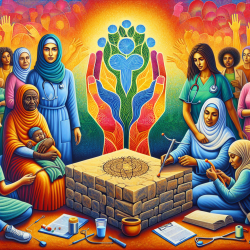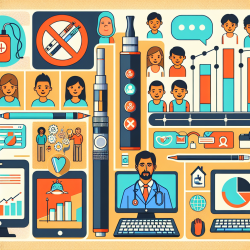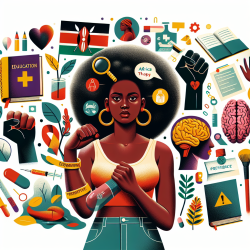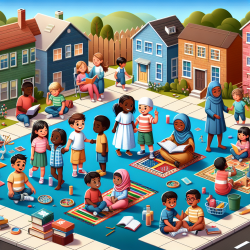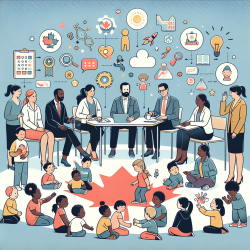Introduction
Healthcare access for refugee women with limited literacy is a complex issue layered with multiple disadvantages. The study titled "Healthcare access for refugee women with limited literacy: layers of disadvantage" provides valuable insights into the lived experiences of recently-arrived, government-assisted refugee women in the greater Vancouver area. This blog post aims to help practitioners improve their skills by implementing the outcomes of this research or encouraging further exploration.
Understanding the Challenges
The research highlights three primary themes that impact healthcare access for refugee women:
- Dependence: Language barriers and unfamiliarity with urban environments often lead to reliance on others, such as neighbors or family members, to access healthcare.
- Isolation: Feelings of fear, rejection, and shame due to language and literacy barriers contribute to a sense of isolation when navigating the healthcare system.
- Resourcefulness: Despite challenges, refugee women exhibit resourcefulness by finding ways to access healthcare through memorization, visual cues, and community support.
Implications for Practitioners
Practitioners can enhance their skills by understanding the intersectionality of gender, literacy, and refugee status. This understanding can guide the development of more inclusive and supportive healthcare services. Here are some practical steps practitioners can take:
- Enhance Communication: Utilize interpreters and culturally sensitive communication strategies to bridge language gaps and ensure understanding.
- Promote Autonomy: Encourage independence by providing clear, simple instructions and supporting literacy development through community programs.
- Foster Peer-Support Networks: Establish community-based peer-support programs that leverage the resourcefulness and resilience of refugee women.
Encouraging Further Research
While this study provides valuable insights, further research is needed to explore the strategies refugee women develop to overcome healthcare access barriers. Practitioners are encouraged to engage with refugee communities to understand their unique challenges and strengths better. This engagement can lead to the development of tailored interventions that address the specific needs of refugee women.
Conclusion
By implementing the outcomes of this research, practitioners can improve healthcare access for refugee women with limited literacy. Understanding the layers of disadvantage and promoting resourcefulness can lead to more equitable healthcare services. To read the original research paper, please follow this link: Healthcare access for refugee women with limited literacy: layers of disadvantage.
